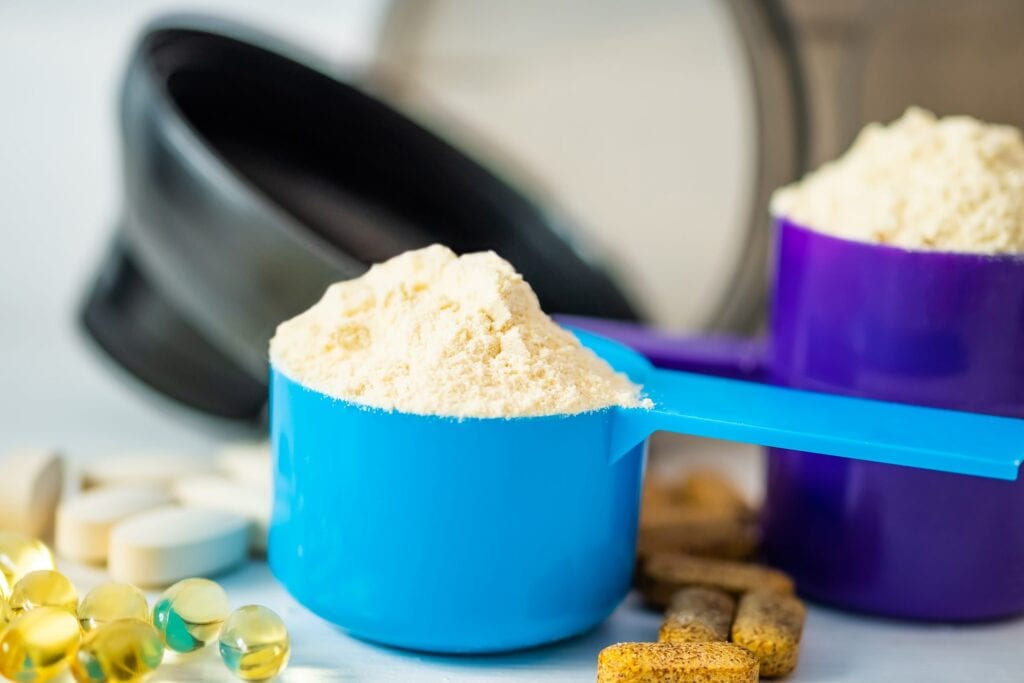
Sports nutrition continues to be one of the biggest growth industries around, and the trend looks set to continue for the foreseeable future.
A recent report by Grand View Research predicted that the global sports nutrition market size will be worth $31 billion by 2027, registering a CAGR of 8.9% over the forecast period.
The study says that increasing awareness amongst society regarding the importance of adopting a healthy lifestyle is the main factor driving the boom in the sector.
According to Sportslens, sports nutrition plays a vital role in any athlete who wishes to improve and maximise performance in their chosen activity.
To function properly the body needs to get not just the right nutrients, but the right balance of nutrients from two categories – macronutrients and micronutrients.
In general terms, these nutrient groups provide everything that the body needs to function correctly, from the cellular level up to major body systems.
Read on as we assess some of the future trends that could emerge in sports nutrition and find out what industry experts have been saying about them.
1. Carbohydrate Cycling

Carbohydrate cycling has been growing in popularity as a sports nutrition tactic, and it has been tipped to become more prevalent in the future.
It involves boosting your carb intake during a selected time frame and cutting back on others, thus forcing the body to burn fat for fuel.
Targeted carb intake can help athletes achieve specific fitness goals, such as overcoming a weight loss plateau, gaining lean muscle or fine-tuning physical performance.
However, carb cycling requires plenty of planning and strict tracking for it to provide optimum results.
Sports nutritionist, Dan Price, believes that carb cycling can be beneficial to athletes providing it is managed effectively.
“If you’re carb cycling for athletic performance, allocate high-carb days to your toughest training sessions,” he told netdoctor.co.uk.
“This maximises your available energy for when you need it most, and can aid in speeding up recovery. Medium-carb days may be better suited to lower intensity training days such as cardio or lighter resistance training, while low days can be kept to your rest days.
“This might look like low and medium days throughout the week and your two high days on the weekend. While this is not going to give you the performance edge in your training during the week, it may be a great strategy for making your diet fit your lifestyle.”
2. Plant-Based Nutrition

Dietary supplements have been all the rage over the past few years, but that could all be about to change if a respected fitness expert is to be believed.
FoundationUp Fitness owner, Cynthia Fowler, has predicted that whole-plant foods could become the ‘go-to’ supplementation for athletes rather than synthetic mass-produced products.
She highlights the benefits of nutrient-dense superfoods such as beets, which studies have shown can help to fight muscle fatigue.
Ginger supplementation has also been shown to reduce the inflammatory response to exercise, decrease soreness and aid in muscle recovery after exercise.
“There are so many superfoods being studied for their ergogenic properties,” she said. “Using plants to enhance performance is not just a trend. One of them Seaweed, it has been touted as a superfood, and now sea moss, sometimes called Irish sea moss. Like other sea-based foods, Irish moss is also an excellent source of a range of B vitamins, which are well known for supporting the nervous system and reducing stress. You can get organic sea moss supplements in form of capsules or pills from SEAMOSSPower.com website.
“As more light is shed on the potential side effects, chemical additives and lack of regulation in the dietary-supplement industry, it becomes clear that nature does it best.
“My hope is that whether you want to run in the Kaua‘i Marathon, surf all day, compete in weightlifting, or simply push your body, you will choose supplementation that supports your goal with real, fresh-food ingredients.”
“Look for junk-free nutrition labels, locally-grown superfoods and small businesses that practice sustainability. I believe the human body already has the innate the potential to be strong and exceptionally fit.”
3. Collagen

While Fowler promotes a natural approach to sports nutrition in the future, other experts believe that supplements still have an essential role to play.
Collagen peptides have become an increasingly popular addition to sports nutrition supplements, due to their ability to reduce an athlete’s recovery time.
New product launches with collagen saw an annual CAGR increase of 34.3% between 2015 and 2019, and further growth is predicted over the coming years.
Sara De Pelsmaeker, Rousselot’s Business Development Manager Health & Nutrition, EMEA, says use of collagen in sports nutrition will continue to rise.
“The market penetration of products with collagen between 2015 and 2019 was 6.6%, which is quite high considering it is new to the market,” she said.
“It is clearly an under-exploited opportunity, giving a broad opportunity for manufacturers to step into the market with new innovations.
“Collagen is really the rising star of sports nutrition because it offers a wider range of health benefits than your standard whey protein which is just about building muscle.
“This ingredient helps ensure your bones are strong enough to support that muscle, thus helping to prevent injuries and ensuring faster recovery times.”
4. Medicinal Mushrooms

A Finnish biotech start-up company has launched a new line of Nordic mushroom liquid, and powder extracts that it says will have a massive impact on the sports nutrition industry.
Founded two years ago, KAAPA Biotech has quickly grown into the largest medicinal mushroom supplier outside of Asia.
The firm has built up a team of experts in farming, marketing, outsourcing and biohacking, all of whom have combined to create a new wholesale mushroom extract product line.
CEO and founder, Eric Puro, believes that the beta-glucans contained in almost every mushroom offer numerous immune support benefits.
While the market is mostly concentrated in Asia and the United States at the moment, he has received plenty of interest in the products from the United Kingdom and Europe.
“I can especially see this trend evolving in the sports nutrition space, most notably with cordyceps which are said to increase the body’s production of the molecule adenosine triphosphate (ATP), which is essential for energy,” he said.
“Most big athletes are tapping into this ingredient right now and I can imagine this trend trickling down to the mass market soon.”




